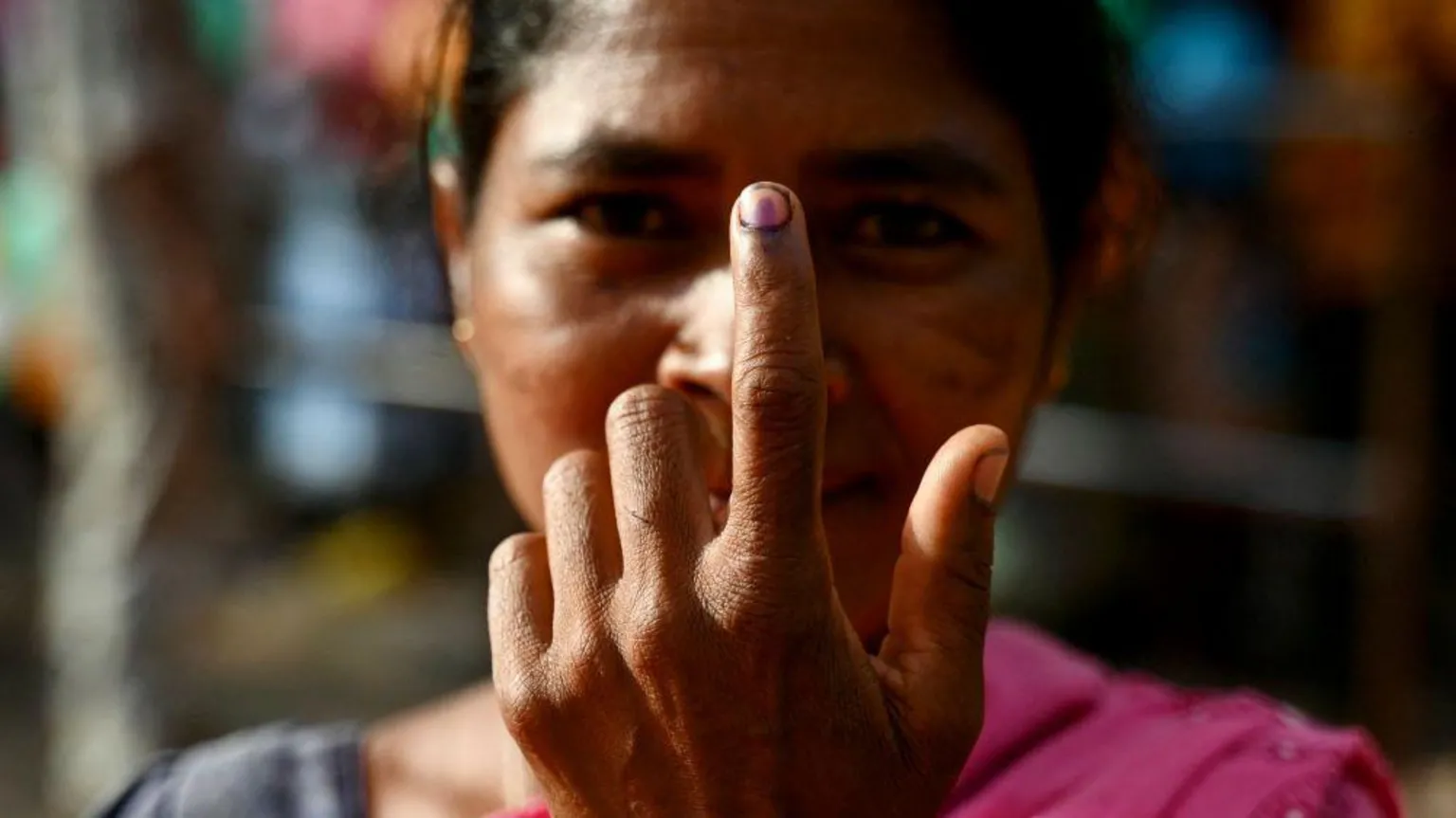
An Indian voter shows their inked finger after voting, symbolizing participation and preventing double voting in parliamentary elections. Image Credit: Getty Images
(The Post News)- Opposition leaders in India, including Congress Party leader Rahul Gandhi, have accused the Election Commission of India (ECI) of manipulating voter data during the India 2024 elections for the parliamentary polls.
In the context of India 2024 Election, Gandhi focused on Mahadevapura in Bengaluru Central, alleging over 100,000 suspicious voter entries. He identified duplicate voters, erroneous addresses, and bulk registrations at single locations.
Gandhi claims these irregularities caused the Congress Party to lose at least 48 seats in the elections.
Allegations of Voter Manipulation and Evidence Tampering
He provided examples such as 80 people registered at one address and voters attempting to cast multiple ballots. Gandhi also alleged that the ECI deleted closed-Circuit Television (CCTV) footage to hide potential misconduct.
In response, opposition leaders demanded the release of digital voter rolls for public audits ahead of the India 2024 elections. They organized protests and disrupted Parliament sessions to press for election transparency.
ECI and Government Response Amid Rising Tensions
The Election Commission of India (ECI) and the ruling Bharatiya Janata Party (BJP) strongly rejected all allegations, insisting that the India 2024 elections were free and fair. The ECI challenged Gandhi to present evidence under oath supporting his claims.
Despite the denials, opposition parties continue to press for accountability. They emphasize the democratic principle of “one person, one vote” in the India 2024 elections.
This controversy sparked a major political row in India, with opposition leaders accusing the ECI of bias. Police briefly detained several opposition leaders, including Gandhi, during protests.
The Speaker adjourned Parliament amid demands for a debate on election legitimacy. The crisis reveals deep mistrust in India’s electoral process despite record voter turnout in the India 2024 elections.
The India 2024 elections exposed the clash between India’s democratic values and intense political rivalries, reflecting deep divisions and concerns about preserving democracy amid shifting power and rising opposition strength.https://www.theguardian.com/world/2025/jul/23/british-families-sent-wrong-remains-loved-ones-air-india-crash



